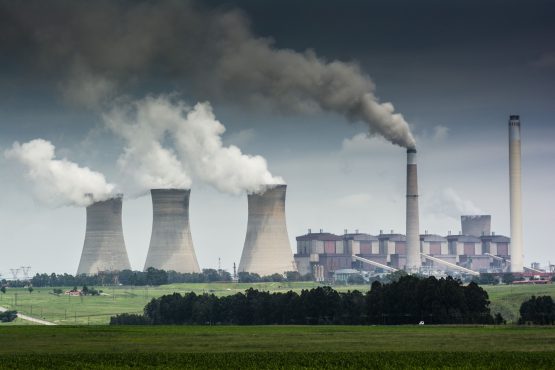
Ramaphosa unveils overhaul of South African energy industry
The government will invite private companies to submit bids to supply additional renewable energy to the grid.
by Mike Cohen and Paul Vecchiatto, BloombergSouth African President Cyril Ramaphosa announced sweeping changes to the nation’s electricity industry to address energy shortages and reduce reliance on debt-stricken state power utility Eskom.
The government will invite private companies to submit bids to supply additional renewable energy to the grid, while businesses will be allowed to produce unlimited electricity for their own use, Ramaphosa said in his state-of-the-nation address in Cape Town on Thursday. Additional capacity will be purchased from existing solar and wind plants, and independent producers will also be permitted to sell their output directly to municipalities.
“We will be implementing measures that will fundamentally change the trajectory of energy generation,” Ramaphosa said.
Eskom provides about 95% of South Africa’s power, but isn’t generating enough income to cover its costs. While the measures announced by Ramaphosa could further deplete its revenue base, its aging power stations don’t generate enough electricity to meet demand. That’s resulted in rolling blackouts and with several of its plants due to be retired over the next few years, urgent intervention is needed to avert an even deeper crisis.
Ramaphosa announced the overhaul after being forced to delay his speech for 90 minutes because of repeated interruptions by the opposition Economic Freedom Fighters. The party’s members demanded that Public Enterprises Minister Pravin Gordhan be fired for failing to address the energy crisis before they walked out of the chamber.
The rand weakened as much as 0.8% before trimming its losses to trade 0.6% weaker at 11 p.m. in Johannesburg, after Ramaphosa’s speech had ended.
The protest made for “good political theater, but wasn’t really a surprise to observers,” said Ilya Gofshteyn, a New York-based strategist at Standard Chartered Bank. “Reform progress is likely to continue to be halting, but I do not think that EFF behavior today materially changes the outlook.”
Since succeeding Jacob Zuma as president in February 2018, Ramaphosa has faced mounting pressure to revive the economy and create jobs for the 29% of the workforce that’s unemployed.

Besides constraining economic growth, Eskom, South African Airways and several other state companies are stretching the government’s already limited finances with constant demands for bailouts to stay afloat.
Ramaphosa warned the nation’s debt trajectory is unsustainable and said Finance Minister Tito Mboweni will announce measures to cut spending when he delivers his budget speech on February 26. The government is in talks with labour unions about reducing the state wage bill, he said.
“We need to fix our public finances,” Ramaphosa said. “We cannot continue along this path, nor can we continue to stand still.”
The energy reforms and others announced by Ramaphosa will take some time to implement, and his speech doesn’t signal a fundamental shift in policy or approach, said Peter Attard Montalto, head of capital markets research at Intellidex.
‘Short-term lift’
“He could have gone harder on specifics of timelines and responsibilities,” Attard Montalto said. “At the margin, the market is going to have a short-term lift on this going into the budget, but I think it will then fade after that.”
Mineral Resources and a Energy Minister Gwede Mantashe signaled the measures to boost energy production will be speedily implemented.
“The president mentioned the generation capacity outside of Eskom” must be increased, he said in an interview. “To me that’s an order.”
Ramaphosa’s address struck the right chord with the Congress of South African Trade Unions, the country’s biggest labour group and a member of the nation’s ruling coalition.
“The president focused on the key issues of growing the economy and restoring the capability of the state,” said Matthew Parks, the group’s parliamentary liaison officer. “Eskom is a key factor and we know that negotiations are proceeding positively between government, business and labour to sort out Eskom’s financial situation.”
© 2020 Bloomberg